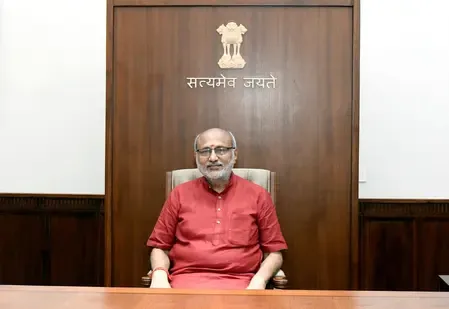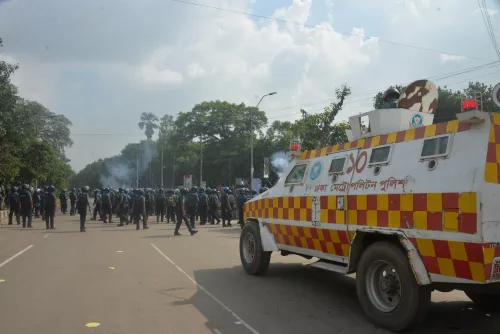NCW Highlights Severe Impact of Communal Violence on Women and Girls in Murshidabad

Synopsis
Key Takeaways
- Women and girls faced severe violence during communal riots.
- NCW reports systemic failures by the West Bengal government.
- Victims experienced physical and sexual violence.
- Many displaced individuals are in vulnerable situations.
- Community demands increased security from BSF or CRPF.
Kolkata, April 25 (NationPress) The repercussions of the communal violence and riot-like circumstances in the minority-majority district of Murshidabad in West Bengal—triggered by protests against the Waqf (Amendment) Act that escalated into violence earlier this month—have severely affected women and children from the victimized families, as noted by the National Commission for Women (NCW) on Friday.
According to the NCW, the ramifications of communal violence have been particularly harsh on women and girls. Numerous individuals faced horrendous incidents of sexual violence, physical assaults, and threats of rape. Survivors recounted how they were forcibly removed from their homes, viciously attacked, and in some cases, coerced to allow their daughters to be violated. The trauma these women endure is profound, and the psychological, emotional, and physical repercussions will be enduring. Displacement has exacerbated their vulnerability, infringing upon their fundamental human rights and dignity,” the statement from the NCW stated.
The findings were derived from a recent investigation led by NCW chairperson Vijaya K. Rahatkar, who visited the affected areas of Murshidabad and engaged with the impacted families.
The delegation also visited a temporary relief center in the nearby Malda district and spoke with displaced individuals who were residing there.
In the report, the NCW emphasized the negligence and failure of the West Bengal government to implement preventative measures against the communal strife, despite having sufficient prior intelligence.
The committee noted a total collapse of administrative structures and governance in Murshidabad. Despite having prior intelligence and evident tensions, the state government did not take preventive or reactive measures and seemed to act as a bystander.
The violence appears to have been intentional and calculated, with numerous victims claiming that homes and businesses owned by Hindus were specifically targeted in an apparent attempt to seize land and property.
The porous border with Bangladesh, coupled with inadequate administrative oversight, has intensified the crisis, and the involvement of extremist religious factions in the region cannot be dismissed,” the NCW statement indicated.
The commission also pointed out that the targeted violence against women in Murshidabad represents not isolated occurrences but a systemic issue causing enduring trauma, destabilizing communities and fracturing social bonds.
“The community, particularly Hindu residents, expressed a complete loss of confidence in the state police and requested the establishment of BSF or CRPF camps to ensure their safety and a return to normalcy,” the NCW statement concluded.
The commission also remarked that despite issuing a peace appeal on April 18, Chief Minister Mamata Banerjee has yet to visit the affected areas of Murshidabad and meet the victims and their families.









